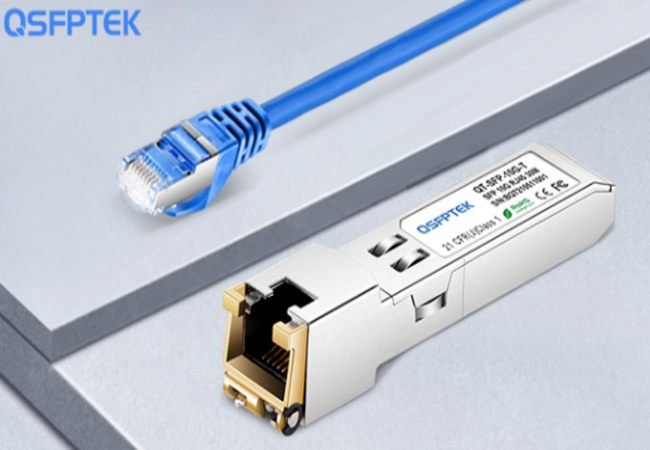As a business owner, keeping your data and information safe is essential. Not only is it important to protect your confidential data, but it’s also critical to prevent cybercrime from happening in the first place. Small businesses are specially targeted for hackers since they don’t have all the big companies’ budgets and resources. Among the most common scams suffered by small and medium-sized businesses are the following Small Business Loan fraud, phishing scams, ransomware and more. Fortunately, there are many ways to protect your business and your clients’ critical data. Here are six cybersecurity tools companies can use to help you stay safe online.
The essential cybersecurity tools every small business should have in place are:
No matter how your digital landscape looks, you always have choices for safeguarding it. The cybersecurity tools you select will depend on how your network is set up. You should first figure out which digital assets are the most important to your company and where your network’s security might be at risk.
For many businesses, the most vulnerable points are the endpoints that connect to their network rather than the internal assets of the network itself. By understanding who is connected to your network and how data flows through it, you can more easily identify opportunities for improvement in your security measures. Here are some tools to protect your business from ransomware, phishing, hackers, loan scams and other threats.
Antivirus software
Antivirus software is a computer program to protect your computer from malware, specifically designed to damage or disable computers. Hackers can spread malware through email attachments, websites, and social media links. Antivirus software scans your computer for signs of malware and then quarantines or deletes the files it finds. While antivirus software cannot protect your computer from every possible threat, it can significantly reduce the risk of infection. In addition, antivirus software can also help to speed up your computer by removing malware that may be slowing it down. As a result, antivirus software is essential for anyone who wants to keep their computer safe from harm.
Firewall
A firewall is a system that helps to prevent unauthorized access to a computer network. Its primary purpose is to block incoming traffic that may harm the web while still allowing outgoing traffic. Firewalls can be hardware- or software-based and are often used with other security measures, such as antivirus software. When configuring a firewall, it is essential to carefully consider which types of traffic should be allowed and which should be blocked. In general, it is best to err on the side of caution, as it is easier to add exceptions later than it is to remove them. By taking care when configuring a firewall, it is possible to help keep a computer network safe from harm.
Password manager
A password manager software program helps you create and manage strong passwords. The password manager can generate a secure, random password for you when creating a new account. It then stores the password in an encrypted database. An encrypted database can only unlock with a master password. That way, you only need to remember one password, and the password manager will safely store all other passwords. When you need to log in to an account, the password manager can automatically fill in your username and password. In addition to making it easier to keep track of your passwords, a password manager can also help to prevent identity theft. Using strong, unique passwords for each account can make it much harder for criminals to gain access to your personal information. As a result, a password manager is an essential tool for anyone who wants to protect their online accounts.
Two-factor authentication
Two-factor authentication (2FA) is an extra layer of security designed to protect your online accounts. When you enable 2FA, you will be required to provide two pieces of information when logging in: something you know (such as a password) and something you have (such as a code sent to your phone). This makes it much harder for someone to access your account without your permission, even if they have your password. While 2FA does add an extra step to the login process, it is well worth the effort to protect your online accounts from theft or fraud.
Anti-spyware software
Spyware is software designed to collect information about a user without their knowledge. It can be installed on a computer without the user’s consent and can be challenging to detect and remove. Spyware can track a user’s online activity and collect personal information like passwords and credit card numbers. It is essential to install anti-spyware software to protect yourself from spyware. This type of software will scan your computer for signs of spyware and remove any malicious software that found. Additionally, anti-spyware software will typically block new spyware from being installed on your computer. Taking these steps can help protect yourself from spyware’s dangers.
Antispam software
In the business world, email is an essential communication tool. However, the increased use of email has also led to a dramatic increase in the number of spam businesses receive. Spam can clog up email servers and make it difficult for users to find legitimate messages. In addition, spam often contains malware that can infect a computer system. Many businesses use antispam software to combat the problem of spam. Antispam software uses various methods to identify and filter out spam messages.
By using antispam software, businesses can keep their email servers running smoothly and reduce the risk of malware infection. Sometimes, the software relies on user input to identify spam emails. In other cases, the software uses algorithms to identify emails that are likely to be spam.
You can also use Geonode’s proxy service to gain another layer of security. It will help filter out any malicious content like spam and ads, and will also block any suspicious users.
Conclusion
It is vital to use a variety of security measures to protect your computer and personal information. Password manager software can help you create and manage strong passwords, while two-factor authentication can provide an extra layer of security. Cybersecurity Tools and antispam software can also help to protect your computer from malicious software. Using these tools can help keep your computer safe from harm.




